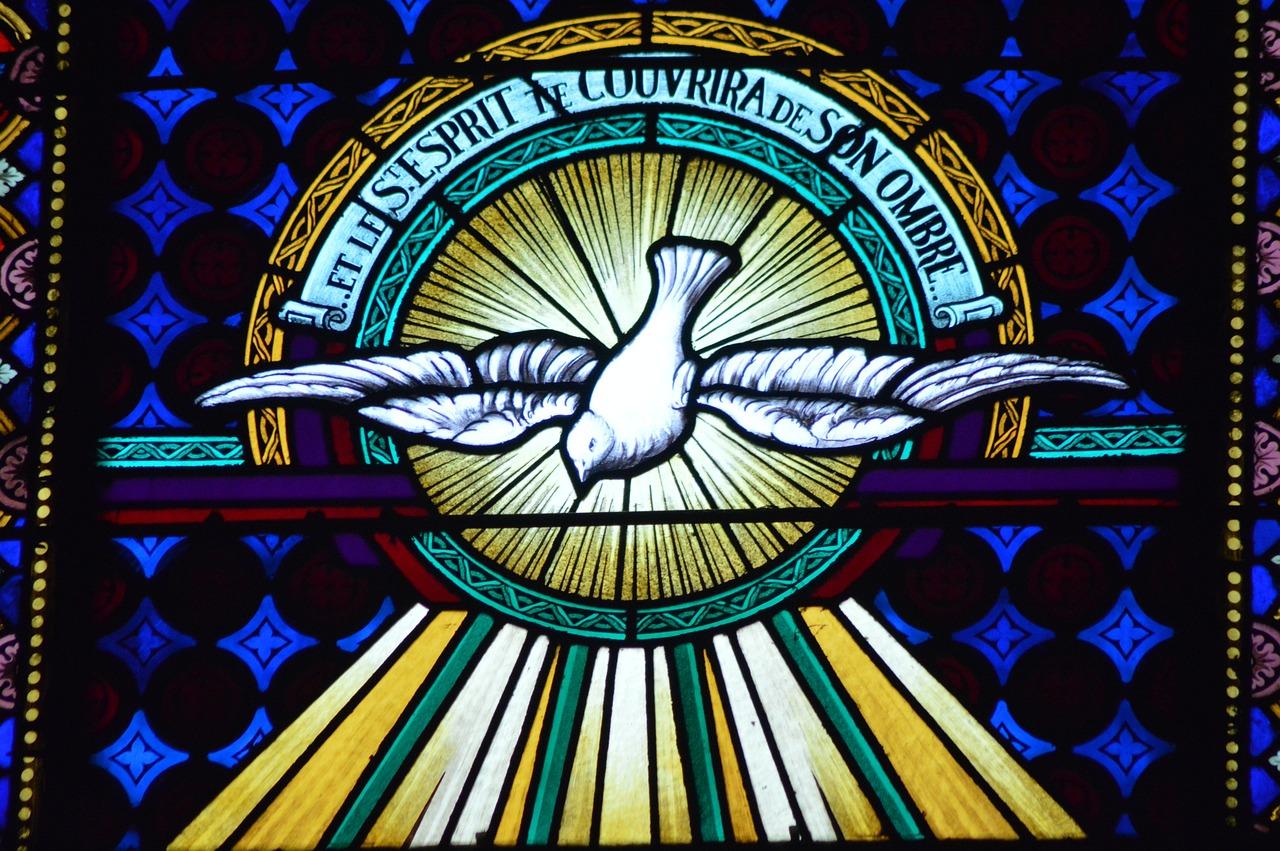The inner life of God is one of family. God is not solitude, but a community of persons. The Father, Son, and Holy Spirit show us the inner, relational dynamism of the divine nature. It was in the image of this Godhead that we were created.
We were made by God. We were made for God. And the way in which we nurture this beginning and end is by drawing closer to God and the things of God.
As we take up the mantle of prayer, we’re taught how to pray by Jesus Christ. We are given the help of us his witness and grace to be truly sons and daughters of God who pray. As we pray, the Lord Jesus shows us the face of our heavenly Father. As we unite ourselves to the prayer of the Lord, we enter into another relationship. We are given the Holy Spirit.
The Catechism of the Catholic Church explains: “Even more, what the Father gives us when our prayer is united with that of Jesus is ‘another Counselor, to be with you forever, even the Spirit of truth.’”
The Holy Spirit moves, blows, and works as he wills. There is no controlling the Holy Spirit. In colloquial terms, we can say the Holy Spirit is “the mad man” of the Holy Trinity. He will do what he wants, wherever and however he needs to, in order to manifest the saving work of Jesus Christ.
The Holy Spirit yearns and pines for the coming of the kingdom of God. He inspires us, pushes us, encourages us, compels us, directs us, consoles us, and leads us in directions that help us to cooperate with his movements and will. The Holy Spirit is on a mission within the human soul and within humanity to bring to completion the redeeming work of Jesus Christ within the human family.
Among his many works, the Holy Spirit will call us to pray. Saint Paul teaches us that we do not know how to pray as we ought and that the Holy Spirit will pray through us.
The Lord’s farewell address highlights the circumstances in which the Holy Spirit will come and teach us, as the Catechism explains: “This new dimension of prayer and of its circumstances is displayed throughout the farewell discourse.”
The Lord’s farewell discourse is a collection of his final words to his disciples and the longest recorded prayer of the Lord to the Father. The discourse is both mystical and practical. It is filled with words of wisdom and mystery. It speaks of the Lord’s work as he prepares for his passion and death. The discourse speaks of the Holy Spirit and what he will accomplish when he is sent to us.
Once we have received the Holy Spirit and share in the dynamism of the life of God, we participate in the life of the Holy Trinity. We commune with the Father, Son, and Holy Spirit. This union is given to us by Jesus Christ. He is always our way. He is our sole mediator and the sure path to encounter God the Father and God the Holy Spirit.
Our prayer now becomes a communal prayer. It is not directed to only one person of the Holy Spirit, but engages each person of the Godhead. Now our prayer is to the Father, through and in Jesus Christ, by the power of the Holy Spirit. Now we can see previous theological formulae being lived out and tangibly experienced and felt in our own life of prayer.
The Catechism reminds us of the central role of Jesus Christ in our relationship with God: “In the Holy Spirit, Christian prayer is a communion of love with the Father, not only through Christ but also in him: ‘Hitherto you have asked nothing in my name; ask, and you will receive, that your joy may be full.’”
The Lord Jesus is the light, the door, and the vine. He is the way, the truth, and the life. He is our path to God and the one through whom – and in whom – we encounter the living God and share in his abundant life.
We cannot fully know God nor be in a loving relationship with him without Jesus Christ. Our life of prayer will be empty and without substantial meaning without the grace and friendship of Jesus Christ. He is the one who leads us into an intimate relationship with the Triune God.
Join Father Kirby every morning for free spiritual encouragement on Morning Offering with Father Kirby.














